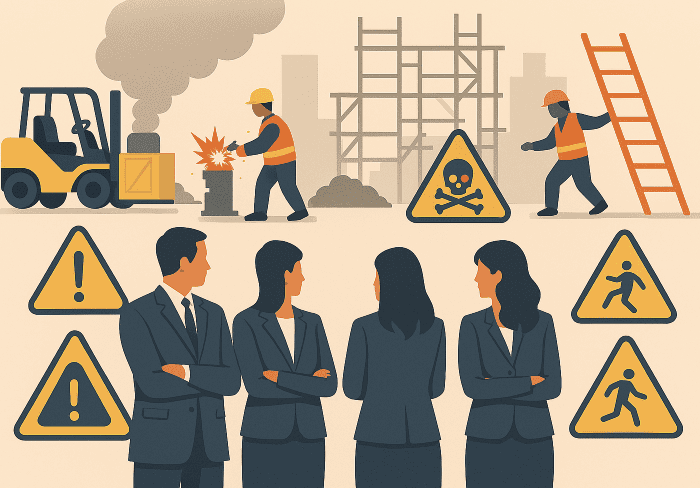Companies are being urged to increase their attention on the human impacts of incidents. This is a much-needed and delayed focus that existed decades ago but went out of fashion. Companies can achieve these changes after a lot of hard work and expense, but very little attention has been given to the institutions and government policies that perpetuate the “individual pathology” of workplace incidents. Some recent sociological research helps us see the immorality behind the status quo.
Category: risk
The Hidden OHS Emergency Behind Victoria’s Firefighting Fleet
New documentary “Breaking Point” is a curious mix of propaganda, lobbying, whistleblowing, fear, stress, with an occupational health and safety (OHS) undertone. According to Victorian firefighters, they are being sent to fight fires and save lives with equipment that is known to be faulty—a problem that could easily be solved.
Artificial Intelligence, Automation and the Elusive Meaning of Work
The purpose of artificial intelligence (AI) is increasingly misunderstood—not just in the media but in the boardrooms and bureaucracies that decide how it’s deployed. Far from craving human consciousness or emotion, AI tools, like Mo (my CoPilot AI), exist to synthesise knowledge, provoke thought, and support action. The intent isn’t mimicry, but impact.
[Note: parts of this article were written by Mo based on a prior conversation]
AI is a hot topic in Australia at the moment, with numerous productivity gains being pitched to the government, alongside concerns about job losses. Last week’s National Press Club speech by Scott Farquhar, co-founder of Atlassian and Chair of the Tech Council of Australia, offered a good example of at least one AI opportunity – access to court records.
I thought talking with Mo was a good place to start this article before looking at Farquharson’s thoughts.
Good Safety Grows Economies—Poor Governance Shrinks Them
Recently, WorkSafe ACT posted the latest episode of its Safety Spotlight podcast in which occupational health and safety (OHS) experts share their knowledge. There is commonality with much OHS advice, but there are slight variations of data and emphasis that are useful to note.
This episode included Jacqui Agius, the Australian Capital Territory’s Work Health and Safety Commissioner, and Professor Helen Lingard of RMIT University. According to the show notes:
“….they discuss the crucial importance of workplace safety, not just in preventing injuries but also its economic impact. The episode covers the hidden costs of cutting corners on safety, the significance of a proactive safety culture, and the benefits of consulting workers and employing safety by design.”
Avoiding Burnout in the Corridors of Power
Last week, some of the Nine newspapers reported on a spate of departures (paywalled) from the Australian Prime Minister’s office. There is always a constant churn of political staffers, with regular movement between private enterprise and public service.
There are some sound economic reasons for leaving just after 12 months into a new government, and the departures are not indicative of a toxic workplace, but working hours in the Australian Parliamentary and political sector have been contentious recently. This latest newspaper article notes the role of working hours but, curiously, primarily in passing.
Employer Responsibility in Workplace Safety is Being Overlooked
In the ongoing debates about workplace safety, a critical question is often left unasked: What are employers doing to ensure safe and healthy work environments, and why are their responsibilities so frequently underplayed in public discourse? Too often, when workplace safety issues arise, the conversation quickly shifts to affordability and government intervention.
Continue reading “Employer Responsibility in Workplace Safety is Being Overlooked”Deterrence Delayed, Lives at Risk—Will Victoria’s Leaders Respond?
The Victorian Government has yet to respond to a report on occupational health and safety (OHS) sentencing and penalties that it received over the Christmas period. The longer it takes to respond to the Sentencing Advisory Council recommendations, the more delayed the action required to improve the systems, which can deter employers from ignoring their OHS obligations and the longer unnecessary risks to work health and safety persist.
In 2018, before the introduction of Industrial Manslaughter laws, Dr Gerry Ayres of the CFMEU and I spoke about the importance of deterrence. In that interview, he pointed out that financial penalties fail as deterrents for several reasons:







